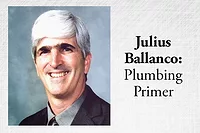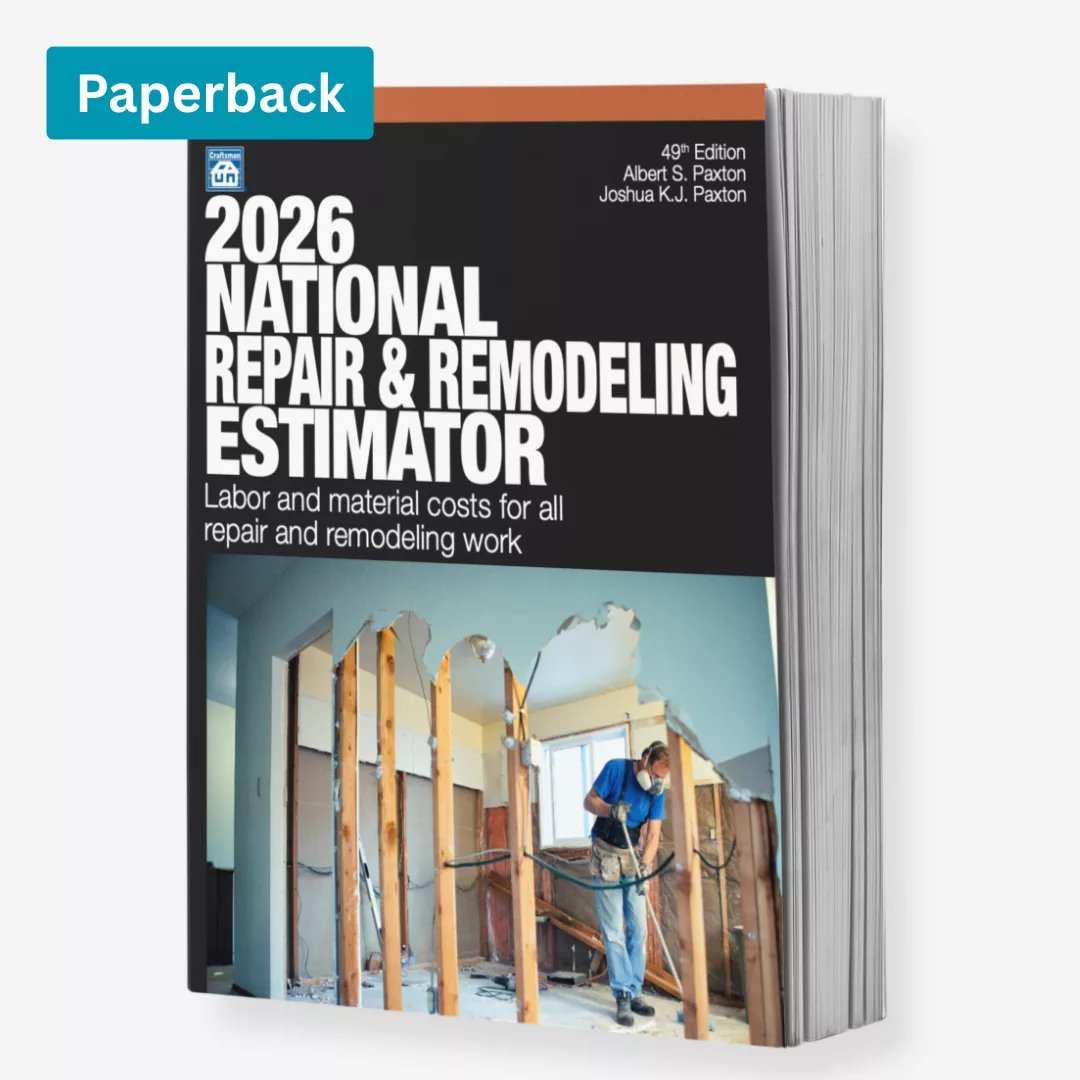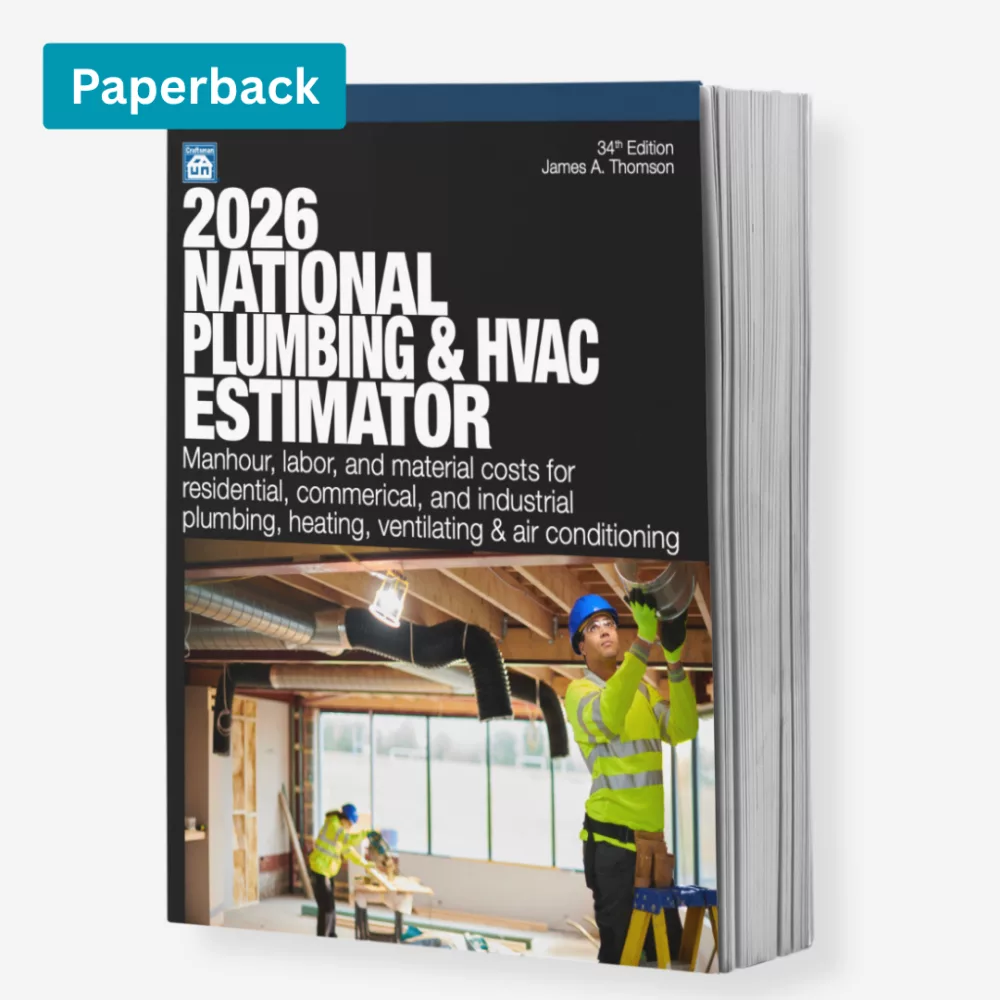National License Clearing House Needed
As I travel across this country, I have noticed a proliferation of licenses. In some states you need a state plumbing license, a local business license in each jurisdiction you work in and a county bond — just to do plumbing! Add to that states with specialty licenses such as backflow prevention tester and repairer, underground work, water softener and filters, electric control wiring, etc. Your plumbing license isn’t good enough to do this type of work.
One of my former bosses always said that there were three reasons for requiring licensing: •
- To establish a minimum level of performance to perform a task. •
- To exclude outsiders. •
- To generate revenue.
If you’re like me, the only valid reason for licensing is the first reason. Unfortunately, the other two reasons are used too often.
Variety Of Requirements: What amazes me is the variety of requirements for obtaining a plumbing license. They vary from state to state, and sometimes from town to town. The educational requirements are different and the tests are different. Some have practical tests — where you’re required to install different piping arrangements — and others have only written exams.
Some states and local jurisdictions actually require a person to wipe lead to obtain a plumbing license. You read that right; they have to wipe lead. Now there’s a useful skill in this day and age. I am sure a new plumber is going to be out there wiping lead every day.
I’ve discussed the lead wiping test with many members of the state licensing boards that have this requirement. Not one person could give me a good or valid reason for requiring a candidate to wipe lead. The only reason I see is to keep a person from getting a license. The lead wiping test has the implications of the second reason for licensing, to exclude outsiders.
Some of the practical tests require a candidate to solder copper tubing, caulk a lead and oakum joint or join a no-hub system. Again these are nice tests, but what if a person only installs PVC plastic pipe for DWV and PEX for water piping? Should that person know how to caulk a lead and oakum joint? A candidate for a license might be an outstanding plumber at installing the materials he or she is familiar with. The plumbing license should allow that person the opportunity to work the trade if they have the necessary knowledge.
Similar problems have occurred on the written tests. Many states, for example, require the candidate to design the plumbing system in a commercial building, including drawing the DWV system and the water piping. That may sound fine, but the same states prohibit a plumber from doing this work. The drawings for commercial buildings have to be prepared by a professional engineer. So why test for something that is not legal to do? Wouldn’t it be better to test the candidate’s knowledge of interpreting the drawings prepared by the engineer? If a licensed plumber can legally design only the plumbing in single family dwellings, perhaps the test should be on the design of a single family dwelling.
More Tests: Once you are licensed by a state or local jurisdiction, that may not help if you cross state lines, or even local boundaries. You may have to take another test. The licensing board may accept your credentials, but they still want you to take a test.
I often wonder why. If you can do plumbing in one location, you certainly should be able to do plumbing in another. I am licensed in New Jersey, but I know I could still install plumbing in California. A soldered joint is a soldered joint; the faucets go in the same way; PVC is still solvent cemented — you get the idea.
I mentioned that in addition to being a plumber, I am also a licensed professional engineer. I have a plumbing license in one state, yet I have a professional engineering license in seven states. The reason is it is easy to get a professional engineering license in other states. Once you pass the test in one state, all the other states and territories in the United States recognize that license. All I need to do is fill out the paperwork and pay the fee. The same is true for an architect’s license.
In addition, there are lots of questions when you take a professional engineering test. But you only have to answer a small percentage. The test provides this option since you may be doing only one type of engineering.
Plumbing tests could provide the same option. Imagine being given a water piping system to design and being told to use whatever material and method of construction you want just as long as it complies with the code. This would be a more accurate measure of a person’s abilities as a plumber.
The reason that licensing laws for engineers are set up so well is because there is an organization that serves as a clearing house for the licensing laws, the National Society of Professional Engineers. The architects have the American Institute of Architects. These two groups have model laws and have lobbied the states to enact these laws. The result is a statewide license for the profession. No local licenses, no local tests, no test when you cross state borders.
This July, a new group was formed between the UA, NAPHCC and MCAA. (For more information, look back at Jim Olsztynski’s Commentary in the August issue.) Although this group wants to fight the adoption of bad codes, they should start out as a clearing house for plumbing licensing reform. What could be better than to have three of the leading groups in the profession head up this clearing house. The industry could stand together to have only state licensing laws enacted. All local plumbing licensing laws could disappear. Exams could be controlled through a model process. You would only have to take one exam in your life. Plumbers could travel from one state to another by simply filling out the paperwork.
If you are a member of any one of these three groups, let them know that you are interested in proper state licensing, not ridiculous fights between plumbing codes. Licensing reform is long overdue. We need to professionalize the licensing laws for plumbers if we want the public to perceive us as the professionals we are.
Looking for a reprint of this article?
From high-res PDFs to custom plaques, order your copy today!








